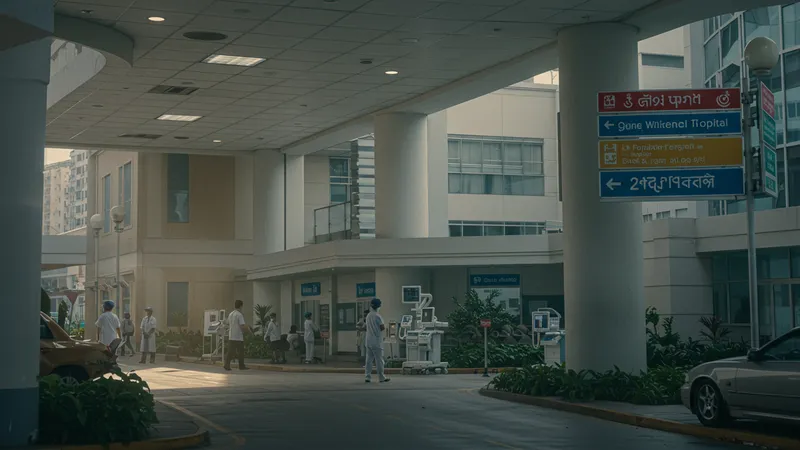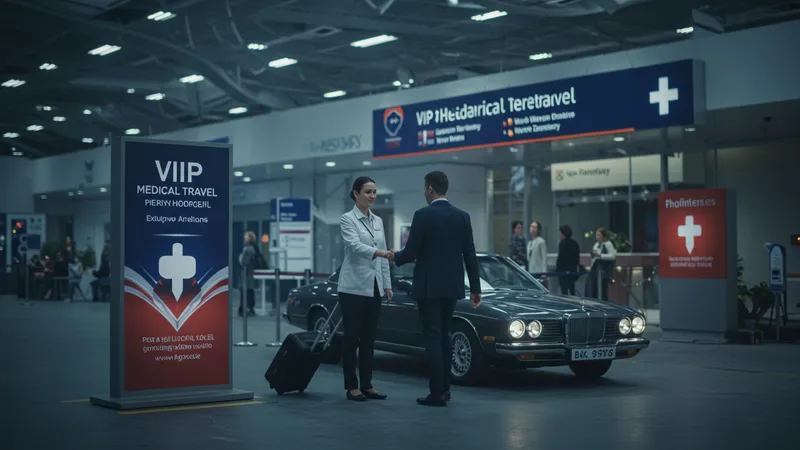Did you know that an average person could save up to 70% on healthcare expenses by opting for medical travel packages? This mind-blowing revelation isn't just about cost savings, but it opens a gateway to world-class medical care previously thought unattainable.
Amid rising healthcare costs, exploring medical travel has become imperative. Not only does it offer affordable access to critical treatments, but it also allows patients to receive care in renowned international medical facilities, bridging the gap between cost and quality.

But what if I told you that this isn't just a simple transaction for cheaper operations? Many are amazed to find that these packages come with an entire support ecosystem. From flight arrangements to post-surgery accommodation, it's the personalized care that catches most off guard. Yet, reports have revealed a shocking truth lurking beneath the glossy brochures—governments in destination countries are quietly incentivizing medical tourism.
Tapping into this unexplored reservoir of incentives not only slashes the usual costs but also elongates the benefits as healthcare systems aim to attract more patients from across the globe. Sounds interesting, doesn’t it? But that’s not even the wildest part…
What happens next shocked even the experts: the real story behind medical travel packages isn't just about convenience or cost—it's about tapping into a hidden network of medical influence, pushing the boundaries of healthcare globalization. What does this mean for those considering this option? Brace yourself, the details might redefine your perspective on medical travel…
Many countries are rolling out the red carpet for medical tourists, and the incentives are not just surface-deep. From tax rebates to discounted hospital rates, governments are diving deeply into their policy bags to attract patients. Reports from nations like India and Thailand have shown a 25% increase in medical tourism, contributing billions to their GDP. This influx is not just coincidental but a carefully sculpted strategy.

Local governments have found a remarkable economic boost through medical tourism, and they're investing heavily in infrastructure improvements and healthcare innovations to accommodate foreign patients. The likes of Singapore and Malaysia now report state-of-the-art hospital wings exclusively reserved for international guests. Such steps ensure quality doesn't just remain a talking point but becomes a delivered promise.
But there's one more twist: these benefits don't just reflect in direct costs. Travelers often overlook additional perks such as wellness tourism attractions and endearing hospitality traditions unique to these destinations. This luxury treatment, albeit unexpected, becomes part of the healthcare equation, transforming a mere hospital visit into a holistic healing journey.
What you read next might change how you see this forever. If you thought the incentives ended at hospital doors, think again. Beyond the sterile walls, a world of cultural enrichment and personal transformation awaits, seamlessly interwoven into the very fabric of medical travel experiences. Ready to discover how this influences the modern patient traveler profile?
Contrary to popular belief, medical travel packages are not solely transactions for medical operations. They're carefully curated experiences designed to heal more than just the body. Imagine being afforded a tranquil seaside view post-surgery or cultural tours as part of your recovery plan. It’s a care model that embraces the physical and emotional aspects, ensuring holistic recovery.

Facilities in destinations like South Korea and Turkey are redefining healthcare by offering post-operative wellness retreats. Access to cultural leisure and stress-relieving activities are integrated into recovery schedules, as hospital partnerships with tourism boards evolve. This has become a game-changer, adding value far beyond initial medical expectations.
The growth in this sector indicates a shift towards a more patient-centric approach, where recovery is seen as a journey rather than a destination. Piloting a recovery process that incorporates mind, body, and environment has set benchmarks for what healthcare could look like globally.
But what about the lesser-known recovery perks? Well, some packages now include concierge services, personal translators, dietary customizations, and more. This isn't just another option; it's a transformed patient care vision promising more than conventional healthcare could offer. Ready to unlock the potentials you never knew existed? Proceed with curiosity…
Mainstream healthcare might not offer personalized attention, but medical travel has elevated the standard with VIP-like services. Imagine being met at the airport by a personal care assistant, who remains with you throughout your stay, ensuring all your needs are met seamlessly. That’s the untouched narrative many don’t hear about.

Privileged access to top-tier surgeons and private facilities are standards within these packages. Services that were once exclusive to the elite are now accessible to those opting for medical travel. Consider yourself having the luxury of choosing your medical team from a pool of globally recognized talent, each meeting strict international healthcare standards.
But the surprises don’t just lie in who delivers your care but also how it’s delivered. Innovative technologies like telemedicine check-ins and rapid lab result sharing are now standard practices. Patients experience cutting-edge methodologies that might be years away from mainstream practice in their home countries.
Yet, there's another layer of intrigue. With each package personalized to the nth degree, the question remains: could this redefine patient expectations worldwide, potentially challenging local healthcare systems to raise their bar? As this becomes a burgeoning trend, the implications are profound with service enhancements and patient empowerment possibly trailing behind. Are you ready to see where this leads? Let’s dive deeper…